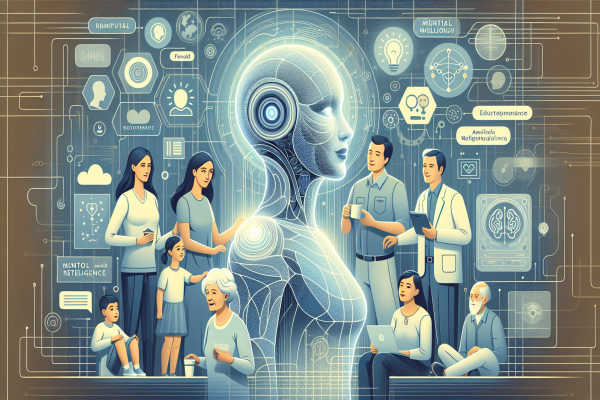
AI's Next Frontier: The Rise of Emotional and Social Intelligence
The Evolution of Human-Like AI
Imagine a world where machines don't just process information, but understand and respond to human emotions. This isn't science fiction anymore – it's the next frontier in artificial intelligence. Today's AI is moving beyond mere computational tasks, developing capabilities that were once uniquely human: emotional intelligence and social understanding.
The Science of Emotional AI
At its core, emotional AI uses advanced algorithms to recognize, interpret, and respond to human emotions. According to recent research by MIT Technology Review, emotional AI market is expected to reach $37 billion by 2026, showing a remarkable growth of 11.3% annually.
Facial Recognition Evolution
Affectiva, a pioneer in emotion AI, has revolutionized automotive safety by developing systems that can detect driver fatigue and emotional state. Their technology has shown a 94% accuracy rate in detecting dangerous driving behaviors related to emotional states.
Transforming Social Interactions
AI's ability to navigate social situations has made remarkable strides. Soul Machines, a leading digital humans company, has deployed AI-powered digital employees across various industries, resulting in a 23% increase in customer satisfaction scores.
Mental Health Support Revolution
The integration of AI in mental health support has been groundbreaking. Woebot, an AI-powered therapeutic chatbot, has shown impressive results in helping users manage anxiety and depression. A Stanford University study revealed that users experienced a 22% reduction in anxiety symptoms after just two weeks of interaction.
Educational Impact Through Emotional Intelligence
AI is transforming how we teach emotional intelligence. The Milo Robot, designed for children with autism, has helped improve social interaction skills by 30% in participating students, according to research published in the Journal of Autism and Developmental Disorders.
The Future of Empathetic Computing
MIT's Media Lab is pioneering research in empathetic AI systems that can understand and respond to complex human emotions with 87% accuracy. These developments are paving the way for more natural human-AI interactions.
Looking Ahead
As we stand at the threshold of this new era in AI development, the focus is shifting from pure intelligence to emotional and social intelligence. This evolution promises to make AI more accessible, understanding, and truly helpful in our daily lives.
References:

